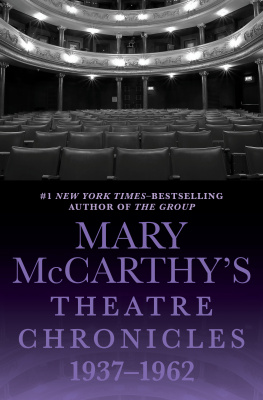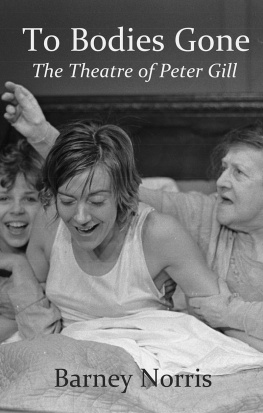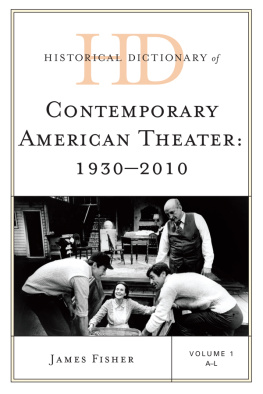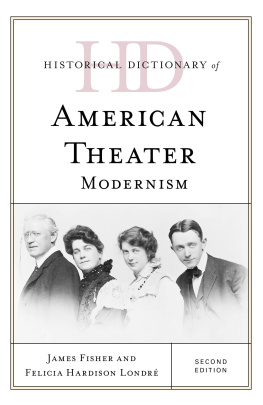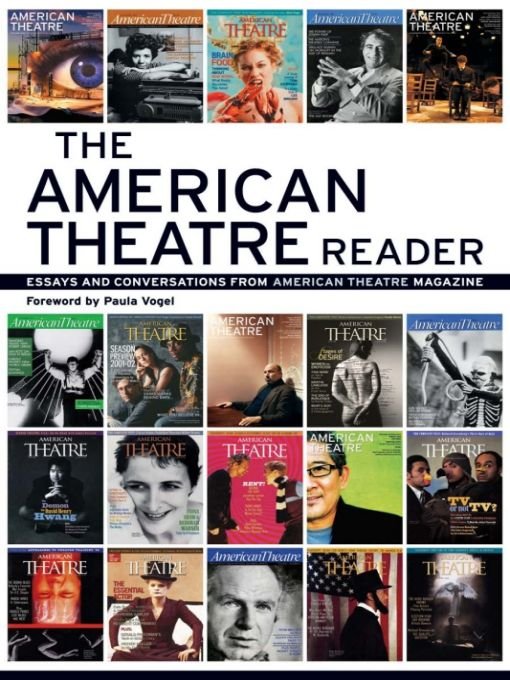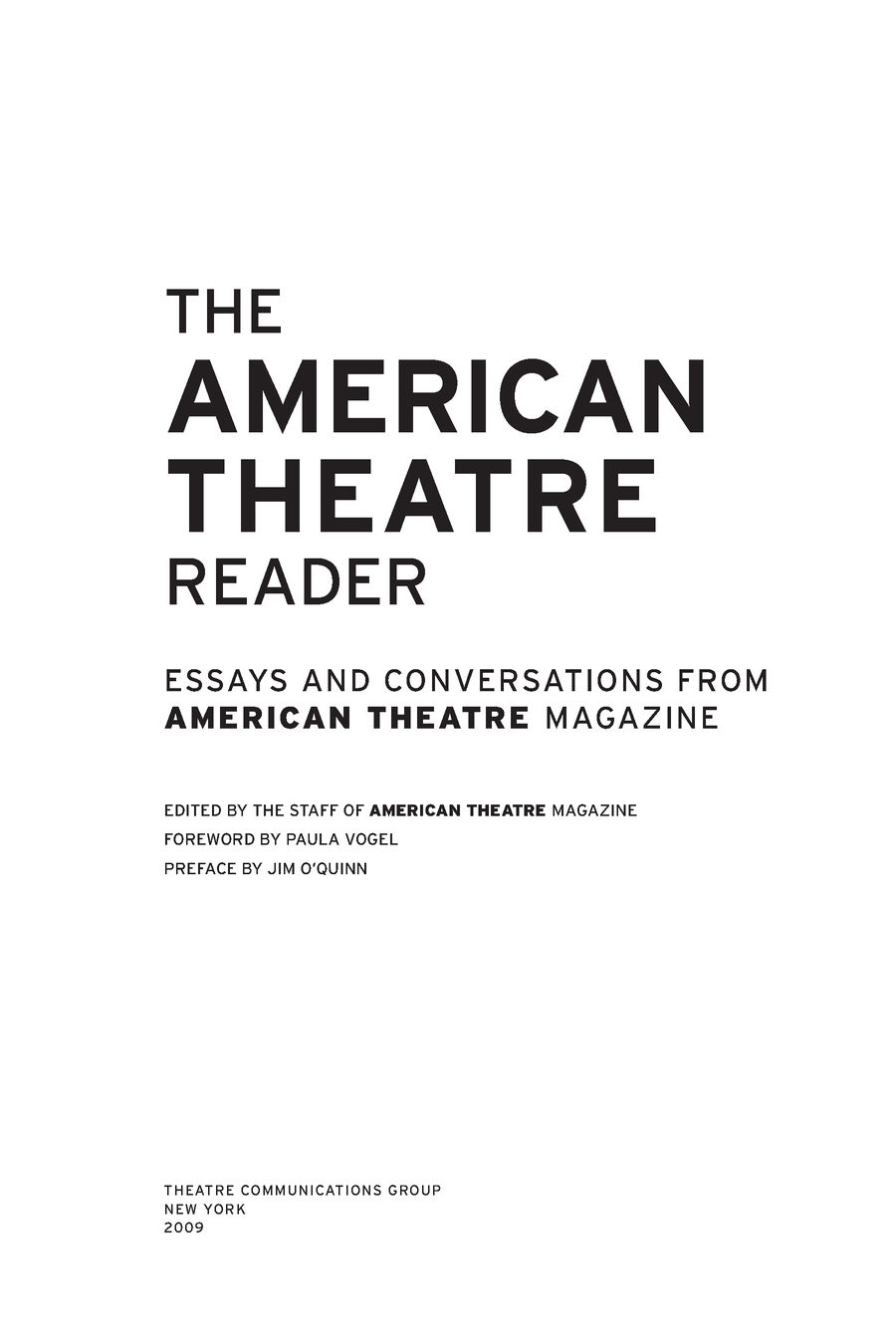Table of Contents
PREFACE
By Jim OQuinn
Id love to be able to say that American Theatre magazine was my idea, but it wasnt. That distinction belongs to Peter Zeisler and Lindy Zesch, the inimitable executive team that led Theatre Communications Group, the multipronged national theatre service organization that is the magazines publisher, for two eventful decades. Zeisler and Zesch (the Zs, in staff shorthand) kept TCG on a carefully modulated and purposeful track through the 1970s and 80s into the 90syears during which the not-for-profit resident theatre movement that had taken root in the cultural upheavals of the 60s continued its unprecedented expansion in cities, towns and communities across America. More than anything, it was this burgeoning of ambitious new theatre organizations in far-flung parts of the country, distant from the art forms traditional East Coast capital, that made the advent of a national general-circulation magazine devoted to theatre not only a logical development but a virtually inevitable one. The question was who would take on the task. Lots of people thought about it, including a coalition of New York producers (who engineered a full-color prototype of such a magazine in the early 80s, complete with fake ads and a photo of impresario Joseph Papp on the cover) and a loose alliance of California academics (who never got that far). The Zs actually did it.
Opera, dance, classical music, even poetrythere have been viable publications devoted to these arts disciplines through the best and the worst of times. But, remarkably, when the first issue of American Theatre appeared in April 84, with an insouciant Sam Shepard squinting from beneath the brim of a straw cowboy hat on its cover, there hadnt been a monthly magazine about the theatre on American newsstands for more than 20 yearssince January 64, the month before the final edition of Theatre Arts Magazine was published. (The final number of that iconic and fondly remembered publication rolled off the presses that February but was never distributed.) American Theatre has some similarities to its historic predecessor, which, over the course of its 48-year run, published the scripts of important new plays and provided a forum for artists points of view. Theatre Arts had made gestures, as times changed, toward broadening its locus of coverage beyond Broadway and the road, but its essential identity was so tied to the theatres commercial heritage that the occasional column datelined Denver or Seattle couldnt suffice to bring its identity in sync with the momentous changes that were underway. Theatre Arts succumbed. The changes kept coming.
I got in on the action when the Zs, with the seeds of a magazine project germinating in their heads, hired me out of the graduate performance studies department at New York University in early 1982 to edit TCG publications, including its spiffy, limited-circulation monthly newsletter, Theatre Communications. Six months later I was joined by a new publications director, a New YorkerturnedSan Franciscan named Terry Nemeth, who came back east to become my closest collaborator in documenting an era of American theatrical life in print. In the years that we have worked side by side, Terry has steered the book division of TCG to its current berth as the largest independent trade publisher of dramatic literature in North America, with a booklist that boasts 250 playwrights, 11 of them Pulitzer Prize winners. The book youre holding in your hands was not my idea eitherit was Terrys.
Part of my job at TCG, I learned in short order, was to draw upon my journalism background (as a former city-desk reporter in New Orleans, publisher of an award-winning small-town weekly paper, managing editor of the NYU-based TDR: The Drama Review, and after-hours arts reporter for any of the Manhattan alternative publications that would have me) to lay the groundwork for a full-scale national theatre magazine. On that score, I was green, but the Zs handed me, Terry, and my fresh-out-of-Yale associate editor Laura Ross over to an advisory committee that would have dazzled any theatre journalist in America: Such idols of mine as the critics Richard Gilman and Robert Brustein proffered opinions about what the magazine should and should not be; the great anthropologist and author Joseph Campbell blessed the project with his enthusiasm; legendary directors Alan Schneider and John Hirsch pitched in with ideas for essays and articles; John Houseman lent his august presence to our meetings; Zelda Fichandler and Gordon Davidson, pioneers of the regional theatre movement, offered perspectives that I value to this day.
The magazine that debuted in April 84some 25 years and 260 issues agowas the product of discussion and debate among these and other guiding spirits. Its typography and layout were stiff, by todays media standards, but the writing and the ideas were authoritative and adventurous from the beginning, as any number of early pieces reproduced in this volume will verify. Those several members of the original advisory committee who did not get to follow American Theatres progress over the full course of its first quarter-century would be pleased to note, I like to believe, how the magazines personality has continued to evolve along with that of the variegated and ever-expanding theatre scene under its purview.
That evolution in the magazines character has been driven in no small part by an astonishing roster of writers and editors who have shared its masthead. Jan Stuart, who went on to be the longtime theatre and film critic of Newsday, and Kathleen Hulser, now the public historian at the New-York Historical Society, were early additions to the American Theatre staff, as were crack-shot theatre writers Janice Paran and, later, Steven Drukman. Stephen Nunns, who currently heads the graduate theatre program at Towson University, kept tabs on the arts and politics through the years of the culture wars. The unglamorous but oh-so-essential second-in-command position (variously called associate or managing editor) belonged over the years to Marc Robinson and Catherine Sheehy, now prominent figures at Yale School of Drama, as well as to my brilliant comrade Todd London; the ingenious James Oseland, now editor-in-chief of Saveur; dramaturg and translator Douglas Langworthy; small-town newspaperman Jack Savage, who devoted a stint in the big city to the magazine; artists-at-heart Michele Pearce and Stephanie Coen; journalist and critic extraordinaire Celia Wren; and the currently indispensable Sarah Hart. Randy Gener, recipient of the 200708 George Jean Nathan Award for Dramatic Criticism, continues to do the magazine proud as senior editor and head writer. Many of the stalwart freelance writers who have contributed to American Theatre year after year are represented in this collection; others are not, but the magazines authority and readability have depended upon their knowledge, writerly skills and willingness to work for ridiculous, next-to-nothing fees.
If Zeisler and Zesch were the magazines original master-builders, subsequent leaders of TCG had architectural adjustments to offer. With Ben Cameron at the helm and a savvy advisory board to assist us, we undertook a rigorous, cover-to-cover re-evaluation of the magazines mission, a process that enlivened and sharpened its content and led to the classy, full-color redesign (by TCG creative director Kitty Suen) that distinguishes


